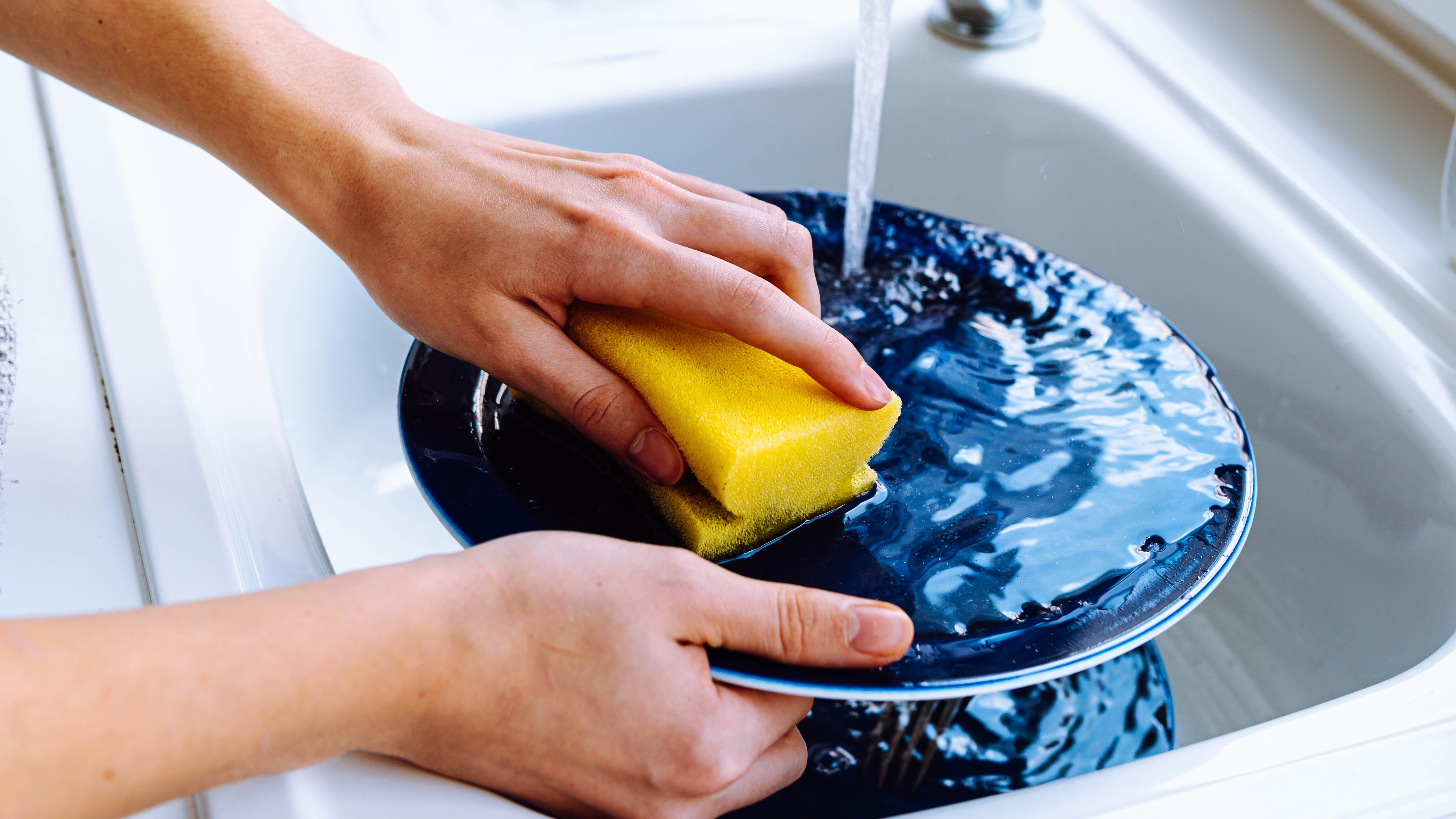Garmin vs Strava — I ran a 10K to find out who has the most accurate race predictor
Can you trust Garmin or Strava for your target time?
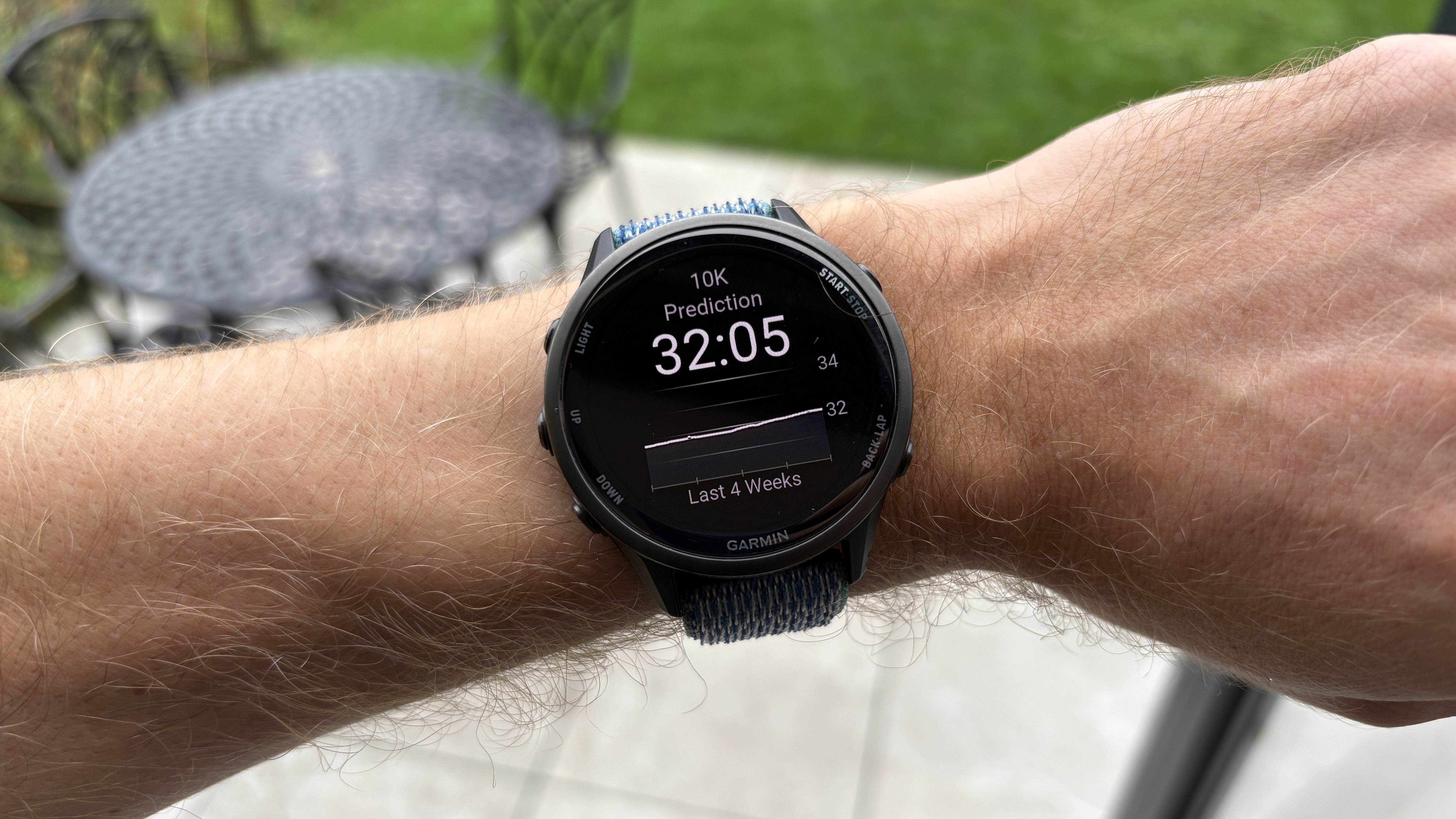
Here at Tom’s Guide our expert editors are committed to bringing you the best news, reviews and guides to help you stay informed and ahead of the curve!
You are now subscribed
Your newsletter sign-up was successful
Want to add more newsletters?

Daily (Mon-Sun)
Tom's Guide Daily
Sign up to get the latest updates on all of your favorite content! From cutting-edge tech news and the hottest streaming buzz to unbeatable deals on the best products and in-depth reviews, we’ve got you covered.

Weekly on Thursday
Tom's AI Guide
Be AI savvy with your weekly newsletter summing up all the biggest AI news you need to know. Plus, analysis from our AI editor and tips on how to use the latest AI tools!

Weekly on Friday
Tom's iGuide
Unlock the vast world of Apple news straight to your inbox. With coverage on everything from exciting product launches to essential software updates, this is your go-to source for the latest updates on all the best Apple content.

Weekly on Monday
Tom's Streaming Guide
Our weekly newsletter is expertly crafted to immerse you in the world of streaming. Stay updated on the latest releases and our top recommendations across your favorite streaming platforms.
Join the club
Get full access to premium articles, exclusive features and a growing list of member rewards.
Pacing yourself is always an important part of running a successful race. You don’t want to go off too fast and suffer through the second half, or feel so fresh at the end that you wish you’d pushed harder in the early stages.
To pace yourself correctly, you need a target time, which should ideally be based on your performance in training rather than a neat number plucked out of thin air. The best sports watches all now provide race predictions for the most common running events — 5K, 10K, half marathon and marathon — and Strava will also do the same, with the watches and app basing these predictions on your training history.
I’ve been training hard for the Brighton 10K and checked my race predictions from Garmin and Strava ahead of the race, as well as asking my coach what he thought I could run. Here’s what they said, and which was most accurate.
Garmin and Strava race predictions
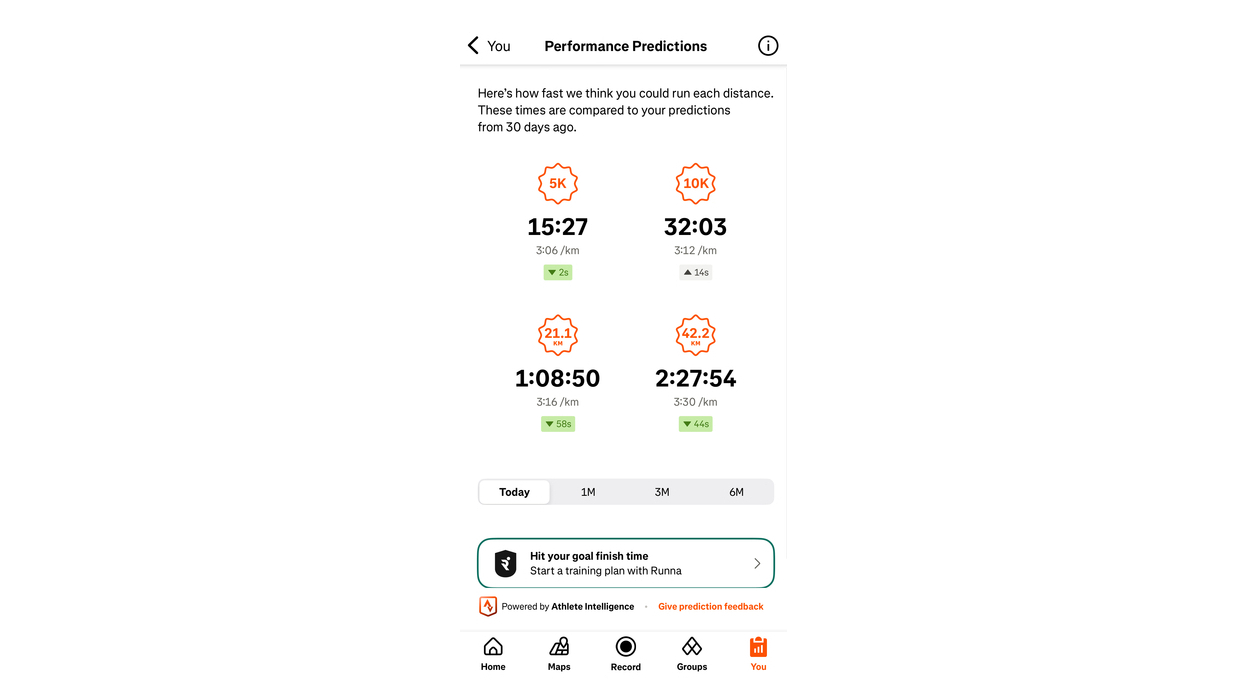
I have been using both Garmin watches and the Strava app for many years, so they have a lot of training history as well as past race performances to draw on with their predictions.
Garmin says it uses the estimated VO2 max you get from its watches, plus training history, to provide a race prediction. I have had my VO2 max tested properly using a gas-exchange mask, and Garmin’s estimate of 69 is about right; coupled with my training history, I expected a good prediction from the Garmin Forerunner 970 I’m wearing at the moment.
Garmin believed I could run the 10K in 32:05, which I assume is a prediction based on perfect conditions — both in terms of the weather, the course of the race not being too hilly or twisty, and my physical condition on the day.
I’ve noticed that Strava’s race predictions are a lot more volatile than Garmin’s, in that they can change quite a lot based on one run. Strava says it uses 100 data points, including all-time run history and top performances, to make its predictions, and doesn’t use theoretical VO2 max estimates.
Get instant access to breaking news, the hottest reviews, great deals and helpful tips.
Ahead of the 10K, Strava’s prediction was very close to Garmin’s, with the app saying I could run 32:03 for the distance, again, presumably in perfect conditions.
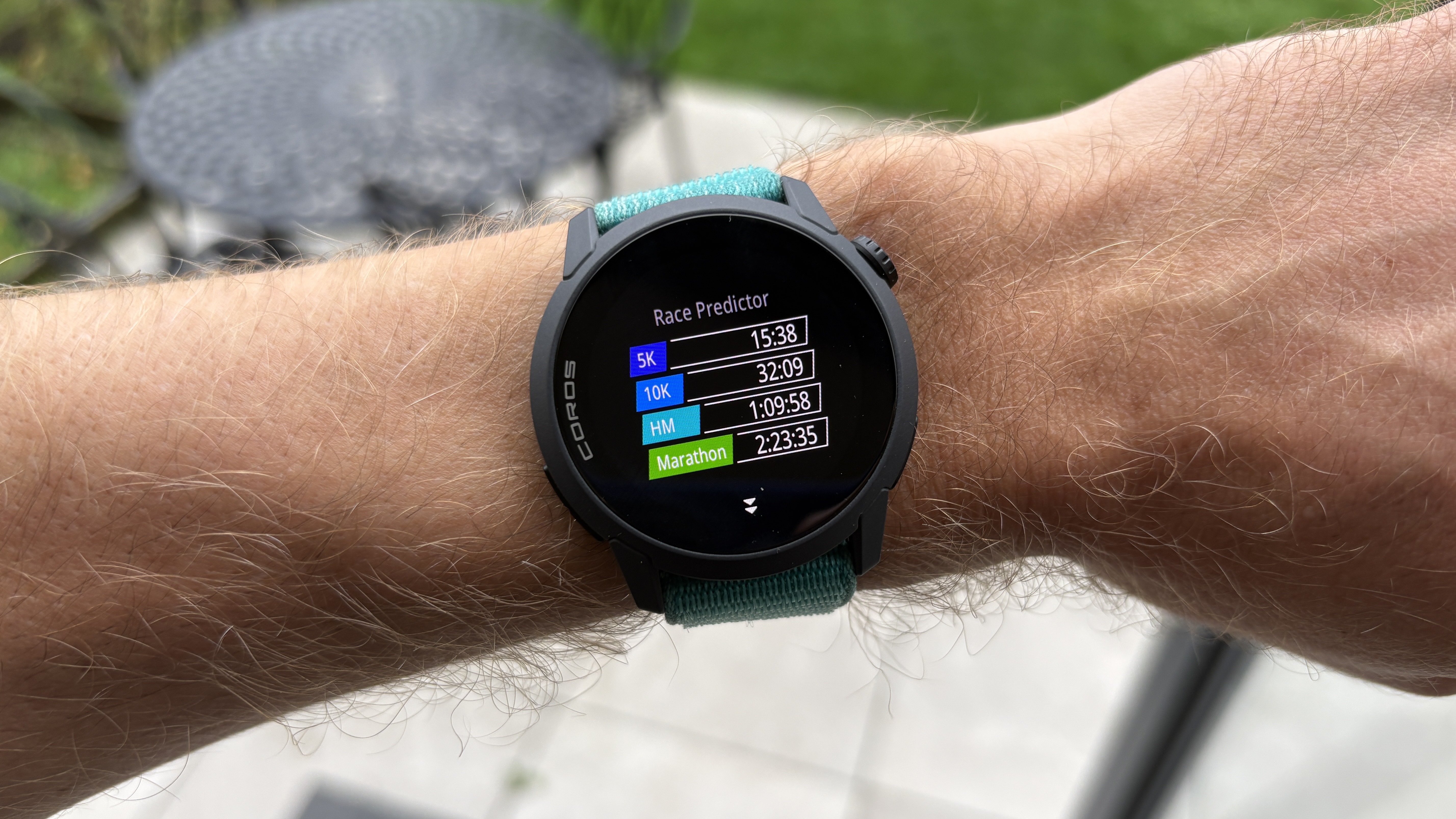
As an extra data point, I also checked my Coros Pace 4’s prediction. I haven’t used Coros watches continuously for as long as Garmin and Strava, but it did give a similar predicted time of 32:09.
Finally, I also asked my coach, Andy Hobdel, what he thought I could run on the day. I’ve worked with Andy for around seven years, and he was more optimistic, suggesting a time of 31:55 was on the cards.
Which was the most accurate?
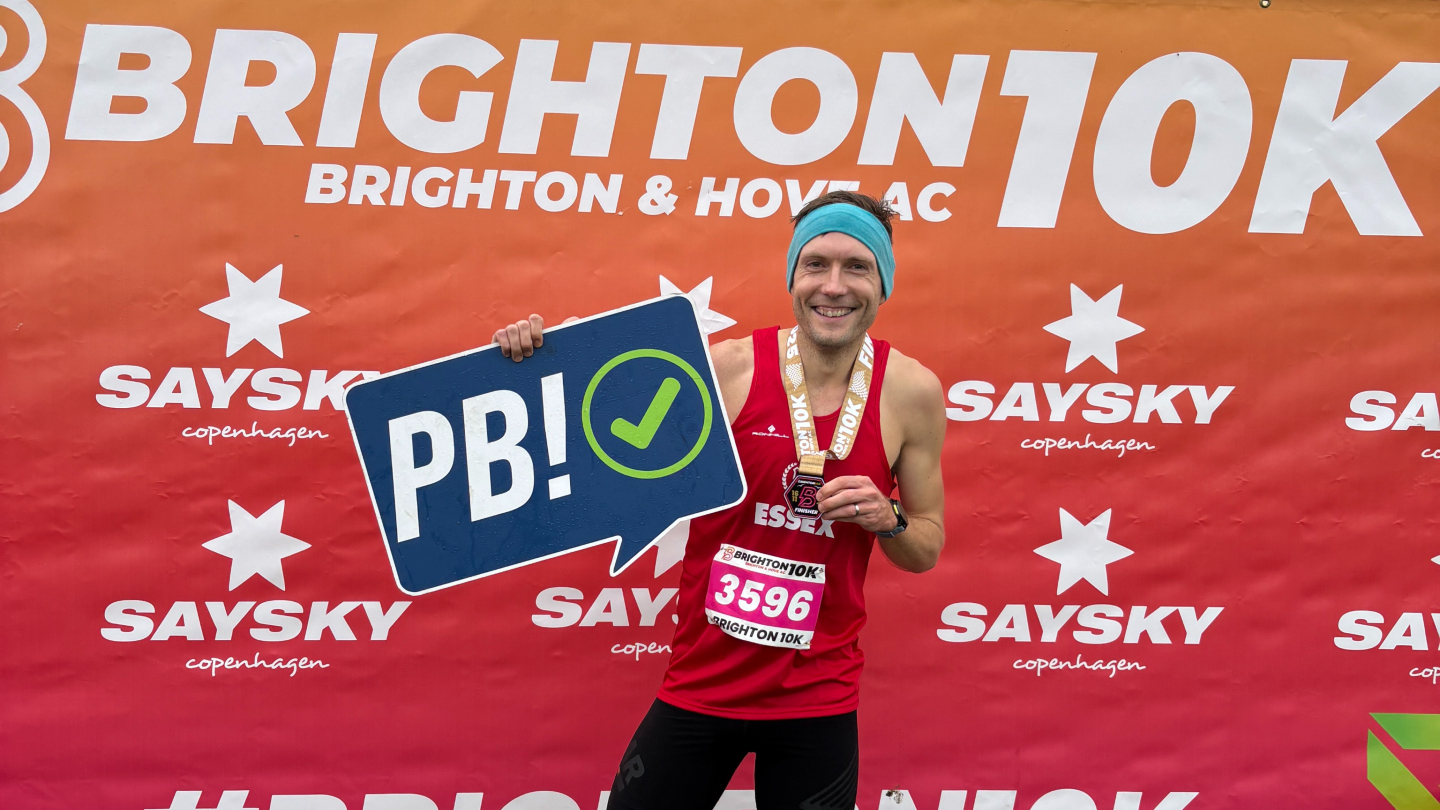
Conditions were close to perfect on race day. The Brighton 10K is a fast, flat course with just three turns, and it has a strong field of runners, so I knew I’d have people to run with all the way, which definitely helps to maintain a fast pace.
The race is on the seafront, and in the past, at the same event, the wind has made it difficult to run fast, but on this day, the breeze was fairly gentle and not a factor. The only potential prediction confounder was that I woke up with a sore throat on the day.
I felt pretty fine overall, though, so I went all out in the race and hit the halfway point in 15:41, way ahead of the pace for my predicted times.
The second half of the race was tough, and I did slow down, but getting involved in a four-way sprint finish helped to keep me going, and I ran 31:54 for a big PR (or PB, as we call it in the UK).
That means that Strava was the closest to my actual time ahead of the predictions Garmin and Coros gave, but all three were pretty much on the mark.
I imagine watches also don’t account for the illogical level of importance runners like myself place on finishing in under a minute mark — 31:59 feels a lot faster and better to me than 32:01, so I pushed hard to go sub-32.
The best prediction of all came from my coach, who was just one second out, which perhaps goes to show that while sports watches and other training tools are good, you still can’t beat the real-world experience of an expert.

Follow Tom's Guide on Google News and add us as a preferred source to get our up-to-date news, analysis, and reviews in your feeds.
More from Tom's Guide
- Coros Pace 4 vs Coros Pace 3 vs Coros Pace Pro: Which is the best Coros watch for you?
- Apple Watch Ultra 2 vs Garmin Fenix 8: Which smartwatch should you buy?
- I wore the Garmin Fenix 8 vs. Garmin Forerunner 970 for over a week — which should you buy?

Nick Harris-Fry is an experienced health and fitness journalist, writing professionally since 2012. He spent nine years working on the Coach magazine and website before moving to the fitness team at Tom’s Guide in 2024. Nick is a keen runner and also the founder of YouTube channel The Run Testers, which specialises in reviewing running shoes, watches, headphones and other gear.
Nick ran his first marathon in 2016 and became obsessed with the sport. He now has PBs of 2hr 25min for the marathon and 15min 30sec for 5K. Nick is also a qualified Run Leader in the UK.
Nick is an established expert in the fitness area and along with writing for many publications, including Live Science, Expert Reviews, Wareable, Coach and Get Sweat Go, he has been quoted on The Guardian and The Independent.
You must confirm your public display name before commenting
Please logout and then login again, you will then be prompted to enter your display name.
 Club Benefits
Club Benefits










